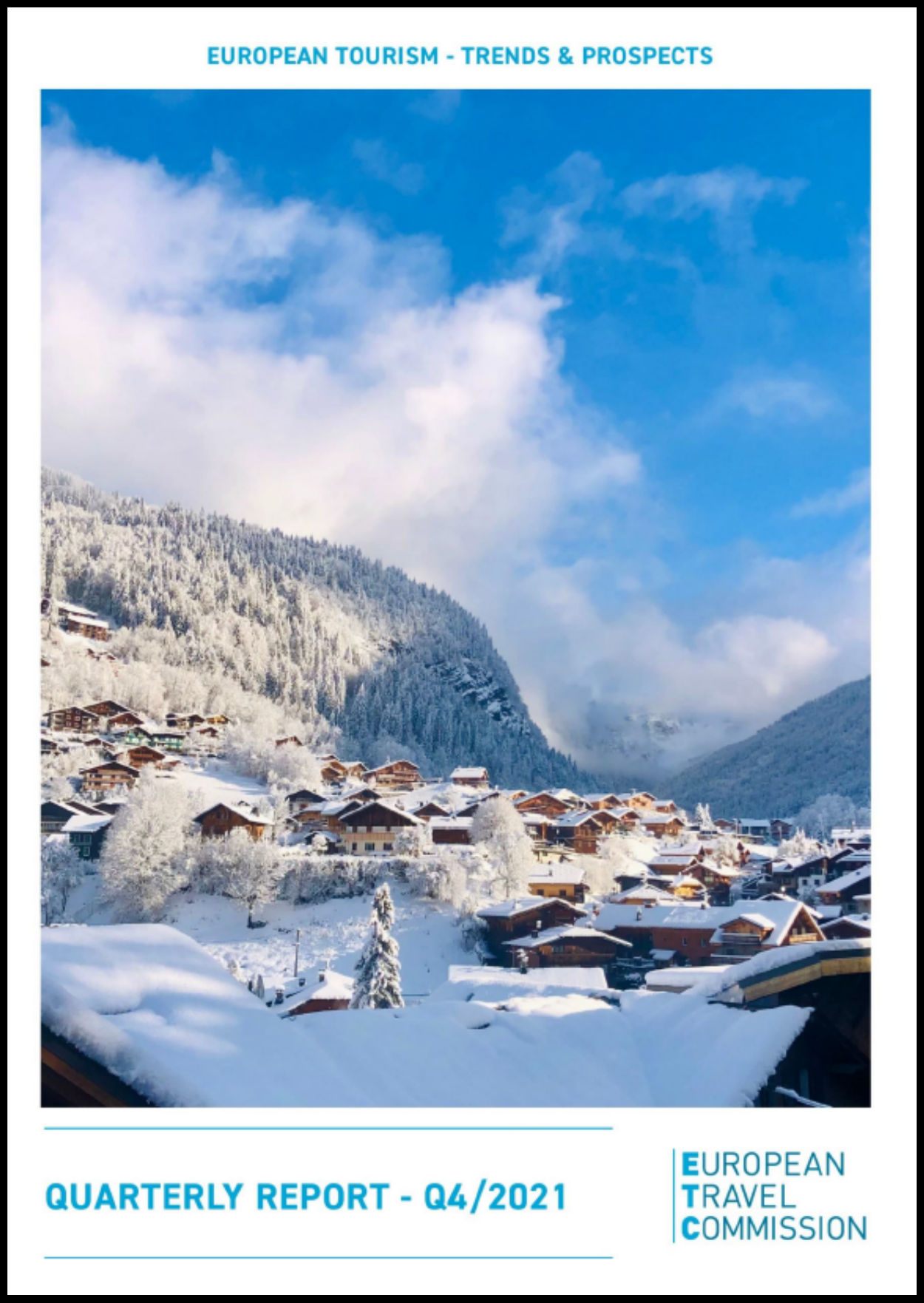Recent Release | 28 Feb 2022
European Tourism 2022: Trends and Prospects (Q4/2021)

Tourism Consulting Team
Tourism Economics


The emergence of the Omicron variant at the year-end, and record-breaking infection rates, brought back mobility restrictions which paused recovery.
2021 data informs estimates of a 62% decrease in tourist arrivals to Europe over 2019 levels, although final data are not yet available. Economic recovery is expected to continue in 2022, but Omicron means growth will be slightly more subdued, at least for the first quarter.
The travel outlook for Europe remains positive, with demand projected to be just 20% below pre-pandemic levels in 2022, fuelled by domestic and intra-European travel demand. Domestic travel is expected to exceed pre-pandemic peaks this year, while rapid intra-regional demand will drive improvement in international.
About the team
Our consulting team at Tourism Economics are the world’s leading analysts of the global tourism and travel sector. They combine their expert insight with our state-of-the-art economic models and tools to answer the crucial questions facing our clients. Lead consultants on the project were:

Dave Goodger
Managing Director, EMEA, Tourism Economics
+44 (0) 1865 268 928

Dave Goodger
Managing Director, EMEA, Tourism Economics
London, United Kingdom
David Goodger is Managing Director, EMEA, Tourism Economics. He has been instrumental in developing the global model of tourism flows and spending, which covers 185 origins and destinations, and he continues to manage regular forecast updates. He also maintains an active role in new product development and consultancy work.
David Goodger is a Director within Tourism Economics and primarily concentrates on tourism demand forecasting and market sizing. He has also taken an active role in further model development for specific purposes, with an emphasis on examining the economic contributions of particular sectors and the impact of different policies. He has conducted a groundbreaking analysis of the business travel sector for the WTTC and the US Travel Association which estimates the return on investment of corporate spending on travel and he has developed models to define destination marketing allocations.
Since joining Oxford Economics in 2000, David Goodger has been involved in a wide range of forecasting and modelling activities. He has been part of the macroeconomic forecasting and the industrial forecasting teams contributing to both regular reports and specific client studies as well as assisting in the development of detailed forecasting and simulation models.
David was educated at the University of Bristol, England, where he gained a first-class degree in Economics with Statistics; and at the London School of Economics and Political Science, England, where he graduated with an MSc in Econometrics and Mathematical Economics.
Related Services

Post
The socio-economic impact of TikTok in Australia
This report provides the results of our economic modelling of TikTok’s economic contribution to the Australian economy, as well as the findings of survey research into TikTok’s users and Australian businesses. It looks at the real world impacts users report as well as the diversity of TikTok’s online communities.
Find Out More
Post
The German Music Industry: Investments and Payments to Artists
Our study "The German Music Industry: Investments and Payments to Artists", on behalf of the German Music Industry Association (BVMI), examines whether and how artists have benefited from the increased revenues of German music labels in recent years.
Find Out More
Post
Global Cruise Trends Report: March 2024
This report delves into research conducted in Q4 2023 across five key cruise markets, all indicating strong cruise demand. Our comprehensive market intelligence aims to equip the travel industry with insights into the significant growth potential in the cruise industry.
Find Out More